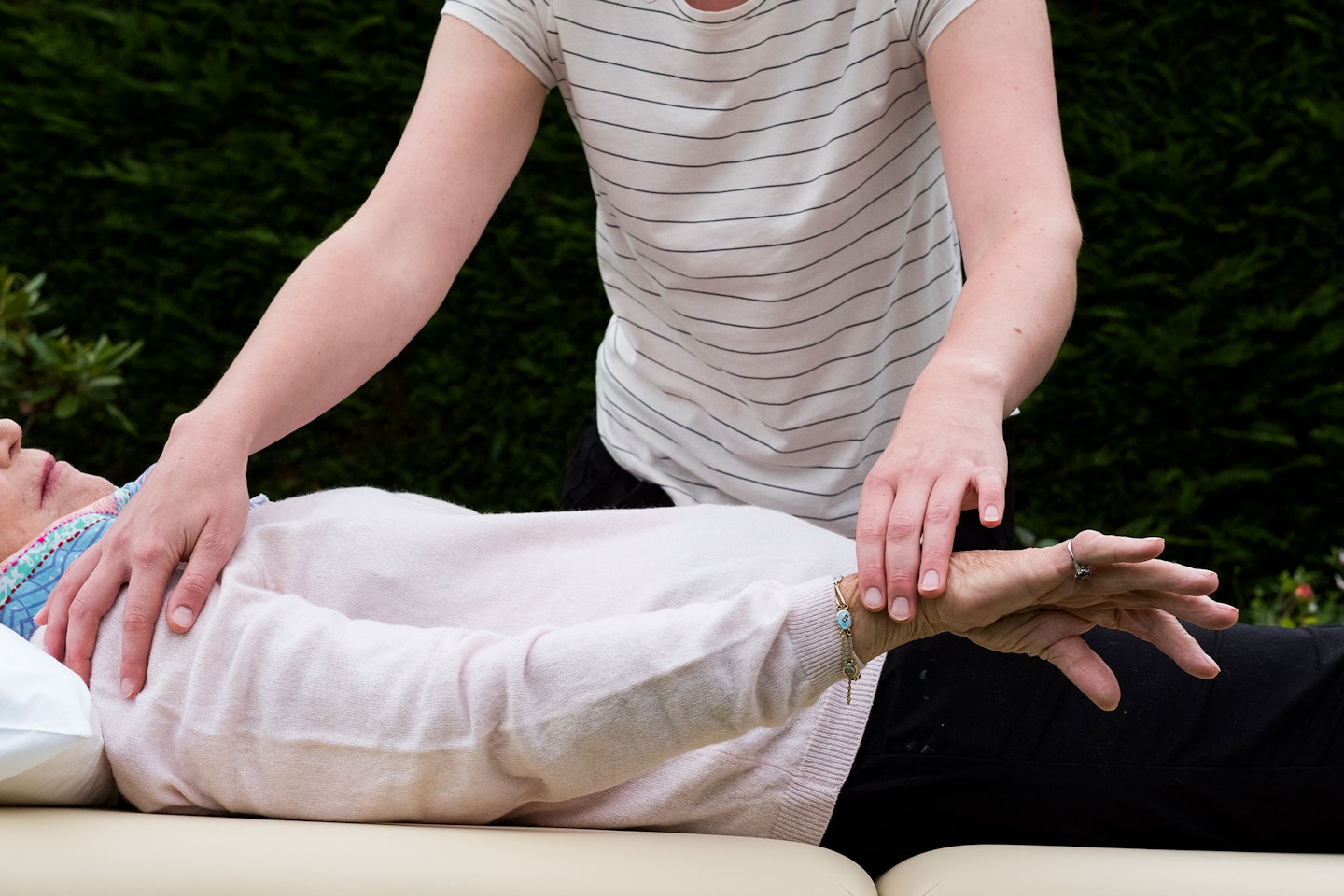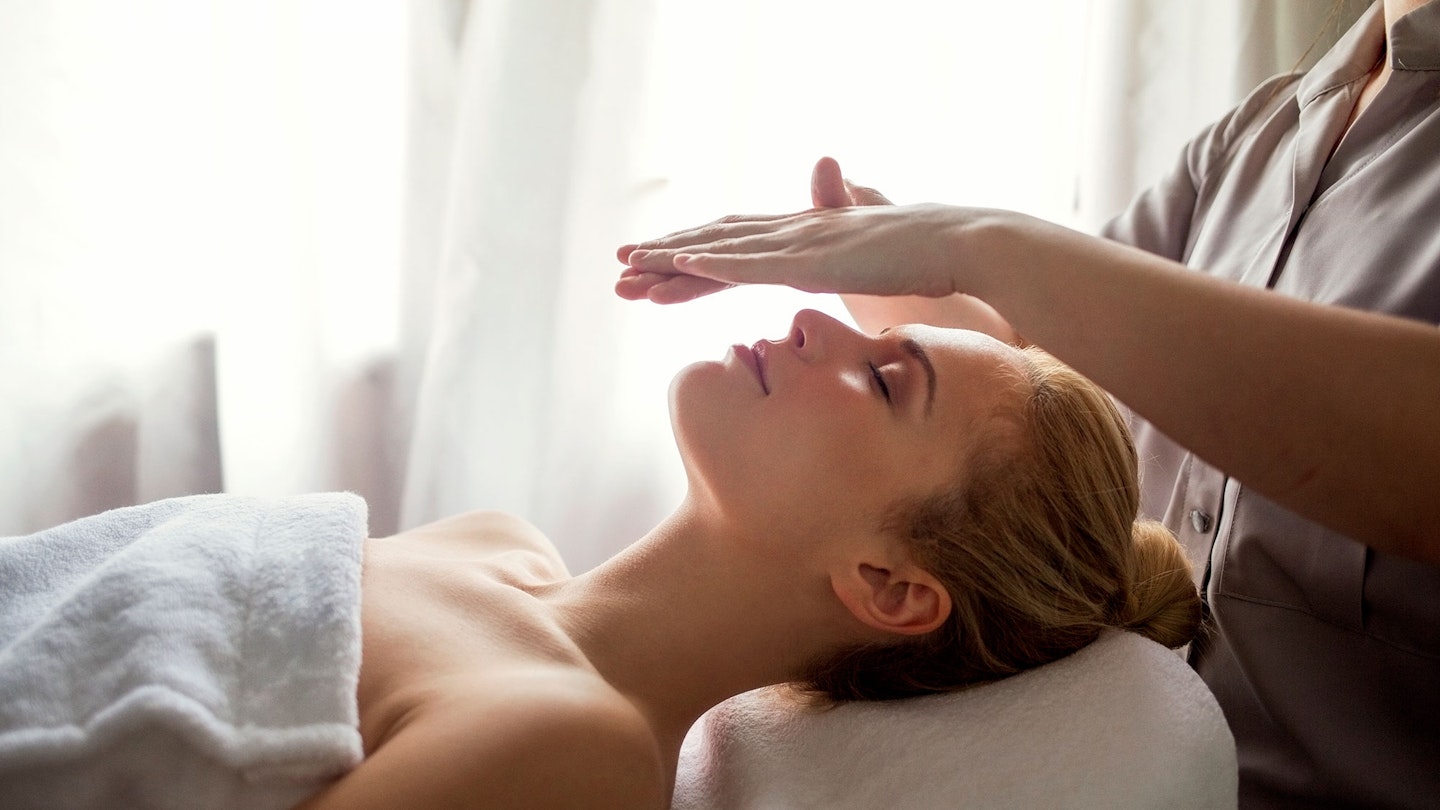Living life as stress free as possible is very high on our agenda these days. After the past few years full of stress and chaos, it's no wonder that searches for wellness trends such as 'what is Reiki?' and 'can manifestation actually work?' have soared.
As we fully embrace wellness and self care, many people are willing to explore Reiki and it's healing powers. Reiki is an Eastern belief that vital energy flows through your body, using gentle touch to help guide energy in a way that promotes balance and healing.
If you're new to Reiki and have a lot of questions, or you're a seasoned pro who wants to learn even more, we asked Natali Kelly, an aesthetic practitioner and founder of the Natali Kelly clinic on Walton Street in Chelsea that provides Reiki treatments, to help us answer all your questions.
What is Reiki?
Reiki is a Japanese technique for stress reduction and relaxation that also promotes healing. Reiki practitioners use their hands to deliver energy to the body and improve the flow and balance of your energy which in turn supports healing; using this within a facial, not only allows you to achieve great skin results, but it also allows you to relax on a deeper mediative level to improve your stress levels and energy balance.

Natali explains, "It is administered by 'laying on hands' and is based on the idea that an unseen 'life force energy' flows through us and is what causes us to be alive. Reiki is an energy healing technique that promotes, relaxation, reduces stress and anxiety through gentle touch, which is allow us to add that added touch into our treatments at the Natali Kelly clinic."
Where did Reiki originate from and how does it work?
"Reiki originated in Japan in the early 1900’s", says Natali.
"Mikao Usui developed reiki deriving the word from the words ‘rei’ meaning ‘universal and ‘ki’ which refers to the vital life force energy that slows through all living things around us. Reiki was originally formed when Christianity was declared illegal and those who refused to renounce it were executed. Reiki was used as form of meditation and prayer to feel peace, stability and to ground oneself without the worry of breaking the law. Now it is used all over the world, including hospitals, wellness retreats and clinics to complement other forms of health benefiting treatments."
Reiki was used as form of meditation and prayer to feel peace, stability and to ground oneself without the worry of breaking the law.
Natali Kelly - Reiki Healer
How does Reiki work?
Reiki works by healing the flow through the affected parts of the energy field and charging them with positive energy. Reiki allows us to raise our vibrations levels in and round the physical body where the negative thoughts and feeling are attached. In doing this, it allows the negative energy within our body and around to break and drop away. Reiki allows us to clear, straighten and heal our energy pathways, thus allowing the life force to flow in a natural, healthy way, making us feel recharged.
What happens during a Reiki treatment?
If you're lucky enough to have a Reiki session with Natali (or another healer), you will find that the practitioner will place their hands on your body, with Natali explaining that "the main energy source will come from the practitioners hands".
"The hand on the body allows balance within the flow of the energy throughout the body. during a treatment, there are light and slow progressions of hand position just above or on a clothed body with each position being held for around 5 minutes. Each session can be short or if one wants. Within a facial treatment within the clinic, it usually lasts between 45-90 minutes depending on the treatment at hand.
"A minimum of three sessions is recommended by a reiki practitioner, however, it can differ from each person."
Is a Reiki treatment effective?
Reiki is not specific to any disease type or condition, but Natali explains that she can help people do the following:
-
Relax
-
Destress
-
Foster bone and tissue healing after trauma to the effective area.
-
Stimulate your body’s immune system
-
Relieve pain and tension
-
Support the well-being of people who are receiving traditional medical treatments such as radiation, chemo, and surgery.
-
Wellness
She adds, "Reiki treatment is effective yes, because it works on the entire self- mind, body, and emotions, and because it is universal life force energy, reiki may be successful in all types of physical, emotional, mental, and spiritual healing."
How does Reiki make you feel after?
After a Reiki treatment, you may experience tiredness if you are overactive in life and need to slow down. Your fatigued state may be a sign that you are stretching yourself too thin and need to take time to practise self-care.
You may always feel energised after Reiki. If your energy was previously stagnant and not being used this may be released during a session. Within this time, you can find a newfound energy in constructive ways.
The main purpose of reiki is to relieve stress and tension, so many clients explain how they feel lifted, emotional, and calm after a session which is what we aim for. It is an added addition to our treatments here at the clinic and as part of our wellness, it is vital our clients leave feeling renewed aesthetically and internally.
